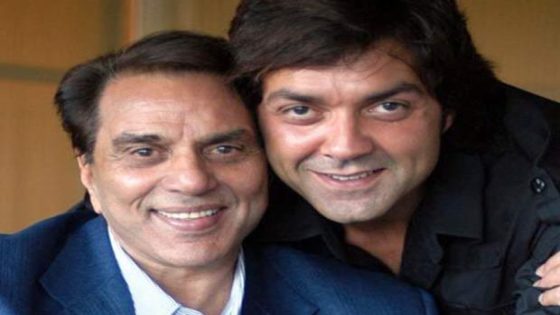On Sunday, Donald Trump posted video of a man raging and cursing uncontrollably at MSNBC’s Joe Scarborough outside what appears to be an airport in New York. This generated a flurry of attention on social media, with some pointing out that Trump’s fury at Scarborough has a history dating back to the Morning Joe host’s public turning against Trump, which includes Trump falsely suggesting Scarborough murdered a young MSNBC intern.
Scarborough and the whole Morning Joe crew have been stern Trump critics for years, but I’d like to focus on something beyond Scarborough here: The video’s declaration that if Trump wins the presidency, “liberals” are “done.”
As the man delicately puts it:
He’ll get rid of all you fucking liberals. You liberals are gone when he fucking wins. You fucking blowjob liberals are done. Uncle Donnie’s gonna take this election—landslide. Landslide, you fucking half a blowjob. Landslide. Get the fuck out of here, you scumbag.
By posting this video, Trump appears to be endorsing that sentiment about not only Scarborough but about liberals generally. Shouldn’t that be pretty big news in and of itself?
Some will give Trump the benefit of the doubt. Surely Trump thought the video was funny. Surely he only intended his MSNBC nemesis as the target. Surely calling a person or group “done” is just a figure of speech. And Scarborough doesn’t appear to feel threatened by the guy in the video. He was just a crank, right?
But the news here isn’t this one man’s anger at Scarborough, it’s that Trump elevated it. And moments like these require context: This one should be placed alongside Trump’s other recent threats, such as his vow that news organizations will be “thoroughly scrutinized” if he wins, his promise to persecute his “vermin”-like political foes, and his threat to prosecute a range of enemies without cause. Looked at this way, is it really a leap to suggest that Trump is broadcasting the idea that liberals should feel threatened en masse by a second Trump term?
There is a mini-cottage industry of punditry that is forever on the lookout for the merest hint of disrespect toward conservative voters, particularly rural and working-class white ones. But the fact that the GOP nominee for president approvingly posted a video that declares a large ideological subgroup of Americans “done” and “gone” if he is elected—never mind the vile epithets directed at them—appears to have garnered almost no headlines. Few if any top shelf pundits have scowled with disapproval.
This is not intended as whataboutism. Rather, the point is that allowing such moments to remain decontextualized makes it easier to evade grappling with their true underlying intent. After all, it is undeniable that a central rationale of Trump’s presidential run is the threat to use state power to persecute and target—in a newly aggressive way—a large albeit ill-defined class of Americans who are designated as enemies of Trump and his MAGA movement.
Importantly, this vow is not merely rhetorical. As CNN’s Oliver Darcy shows, Trump’s threat to “investigate” the media exists in the form of a concrete program, with ideas about prosecuting media figures now discussed openly by Trump loyalists who are expected to serve in a second Trump administration. This talk has taken a truly dangerous turn.
What’s more, the threat also applies to ideological enemies beyond the media: When Trump vowed to root out the “vermin,” he also explicitly declared that his target is a nebulous enemy that lies “within” our country, a word he repeated multiple times. Trump has also vowed to prosecute a whole range of actors in response to his criminal charges. This is often described as a threat of “retribution,” but that’s a euphemism: It really means he will prosecute all these figures without any rationale that’s remotely tethered to the rule of law.
On top of all that, The Washington Post just reported that in mid-May, Trump told a group of donors that he would have student demonstrators not just arrested but expelled from the United States.
Is there any doubt that many Trump supporters hear all these threats precisely as the fellow in that video apparently does—as an expression of the intent to use state power to “get rid” of liberals, that they will be “done” and “gone”? Is there any doubt that when Trump shares that video, he is endorsing that particular reading?
I suspect many liberal columnists won’t get angry about Trump posting this video because in some sense, they want to appear open to the idea that there is an undercurrent of virtue—a kernel of justification—in the anger of Trump voters at small-“L” liberal elites.
You may recall that David Brooks recently wrote a column purporting to plumb the true nature of Trump support. Brooks singled out geographic inequalities, the decline of social mobility, the maintenance of top-tier class privileges across generations disguised as “meritocracy,” and other elite liberal sins, arguing that Trump voters stick by him because of those things, which leads them to disregard criminal charges against him as elite institutional corruption.
Leading journalists rushed to endorse this theory. Yet as Zack Beauchamp explained at Vox, it was an easy way out for them. It doesn’t explain why countless working-class voters also on the losing end of those developments have not reacted by demanding that Trump be placed beyond accountability and the law, which in a way downgrades their virtue.
There is nothing wrong with trying to explain Trump support by pointing to genuine elite liberal failings. Surely that’s part of the story. But that can’t be the end of it. You need to ask the next question: What if some subset of Trump supporters continues backing him not in spite of his efforts to place himself above our institutions and the law—not in spite of his threats to unleash punishment and suffering on other large groups of Americans—but precisely because of those things?
When Trump threatens to disregard the results of the next election, he’s really threatening to treat the political aspirations of millions of ordinary Americans with absolute contempt—their votes are subject to cancellation. When Trump vows to target the “vermin,” or “obliterate the deep state,” or prosecute people who labor in the justice system, he’s really talking about persecuting untold numbers of people who have devoted themselves to making our country function better.
When Trump says undocumented immigrants are “poisoning the blood of our country,” he’s talking about countless longtime residents who have become deeply integrated into communities across the country. When Stephen Miller enthuses that coming mass deportations will be “spectacular,” he’s telling Trump supporters to prepare to thrill to unbearable levels of cruelty directed at all those living, breathing human beings.
And when Trump elevates one of his supporters for celebrating the idea that a second term will result in “blowjob liberals” being “done” and “gone,” it doesn’t matter who he is, or whether he’s crazy, or even if he’s joking—in the very act of sharing the video, Trump is plainly talking about you and me.
Enough of the MAGA sanitization already. If Trump voters are sticking with him through all these things, we should be asking whether these factors are key drivers of some of this support, not credulously treating them as self-evidently incidental to it.
Source Agencies


